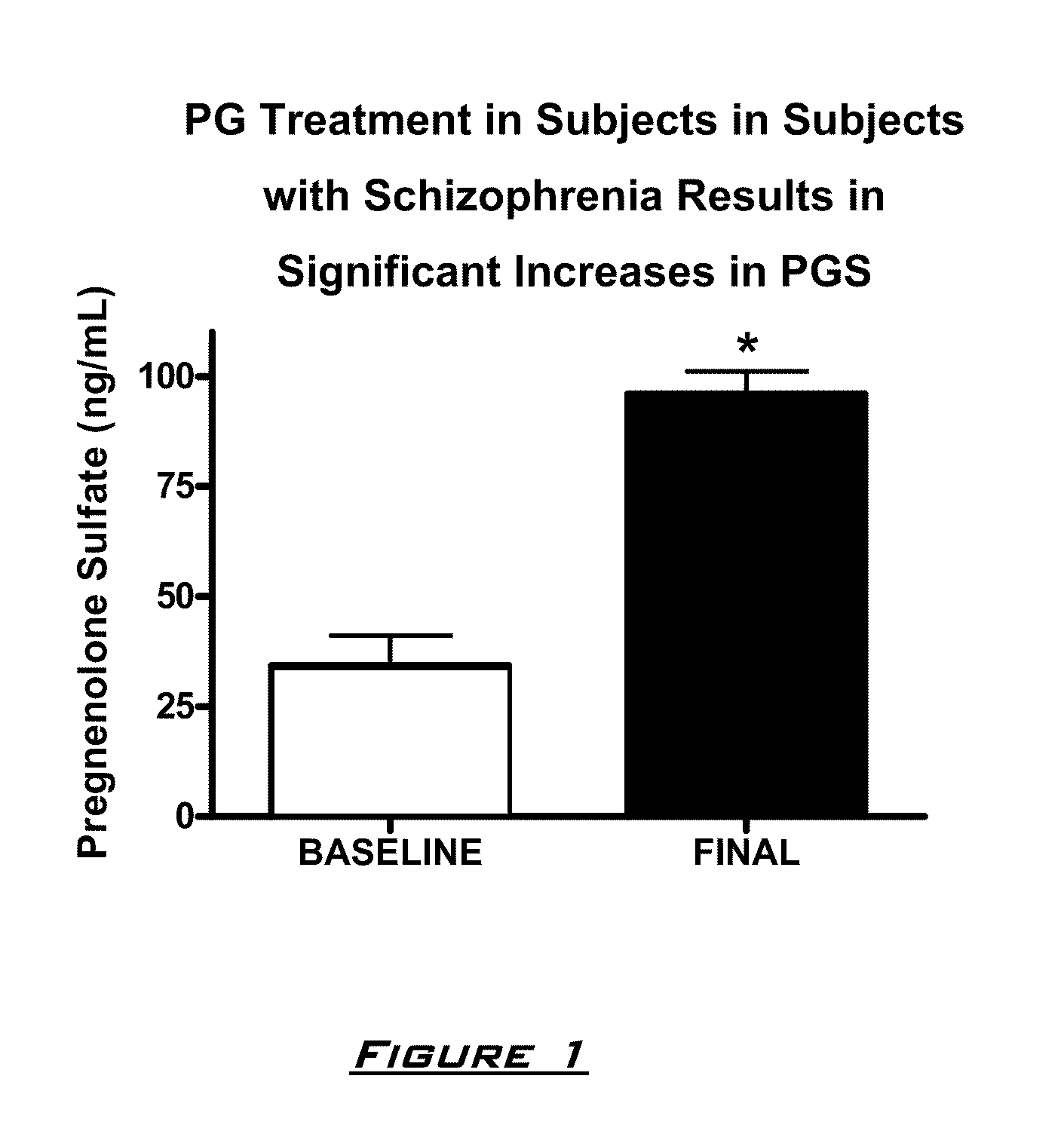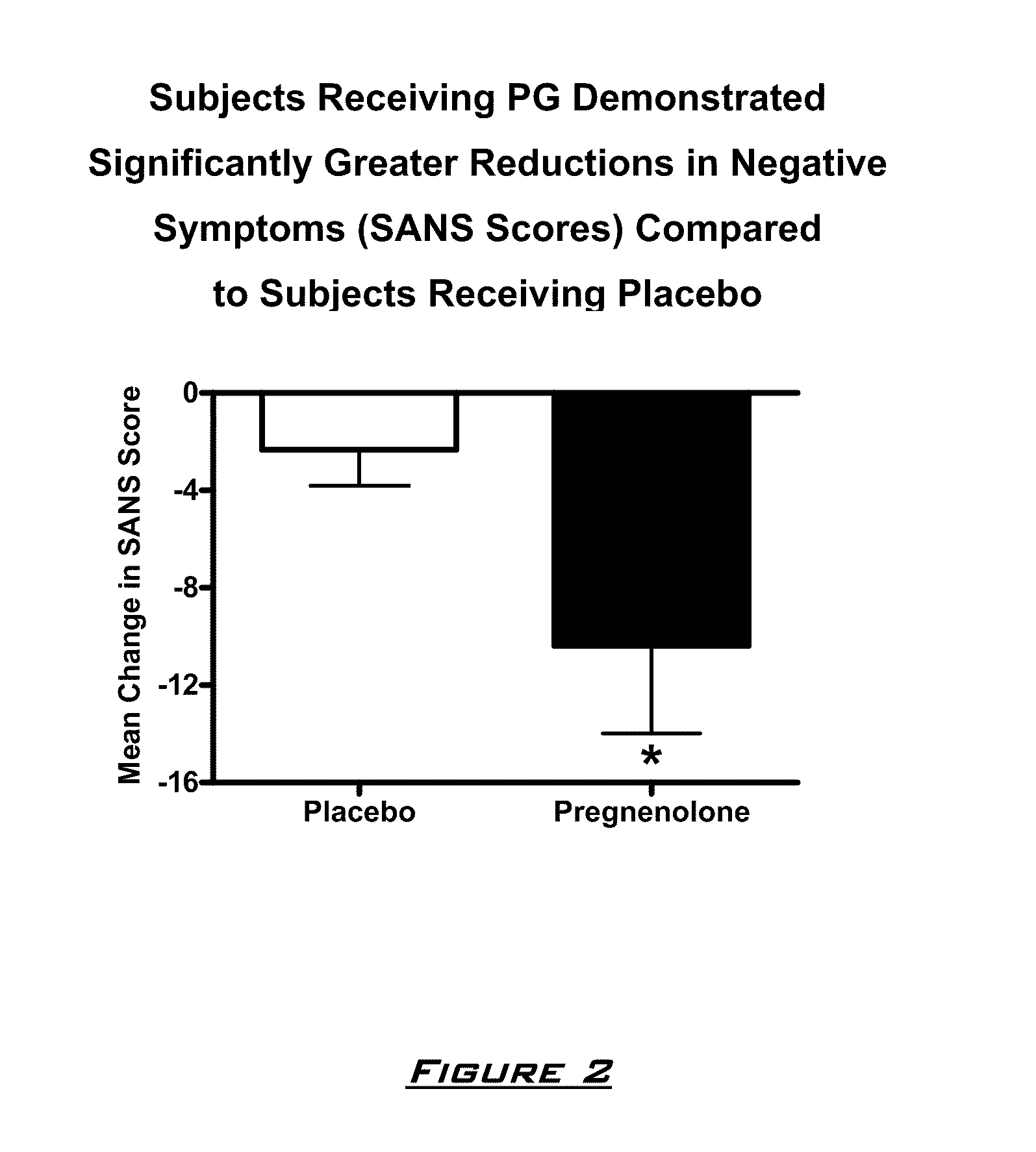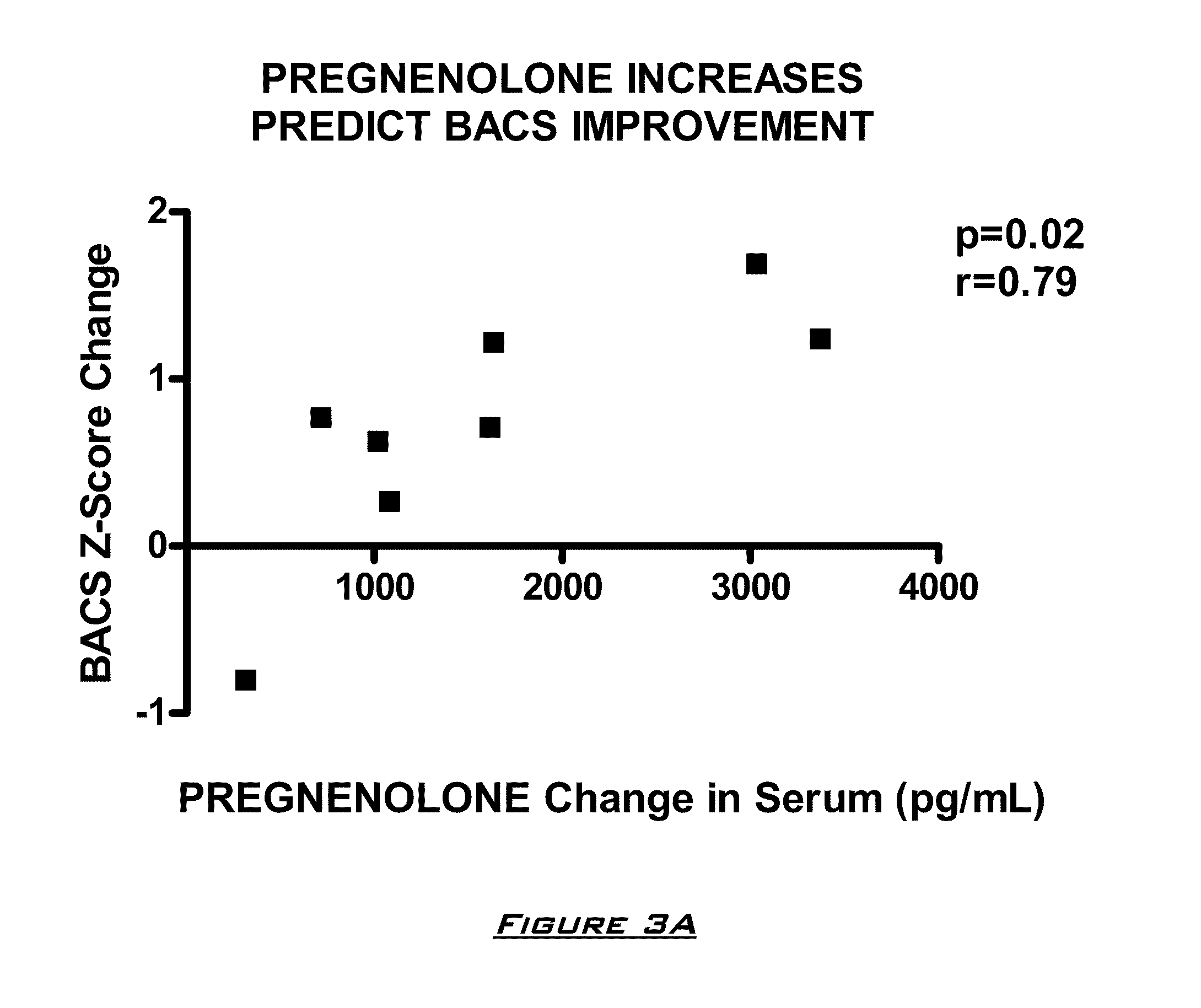Neuroactive steroid compositions and methods of use therefor
a technology of neuroactive steroids and compositions, applied in the field of neuroactive steroids compositions and methods of use therefor, can solve problems such as pain, bleeding, bleeding, bruises, etc., and achieve the effect of improving cognitive function
- Summary
- Abstract
- Description
- Claims
- Application Information
AI Technical Summary
Benefits of technology
Problems solved by technology
Method used
Image
Examples
example 1
PG Administration to Subjects with Schizophrenia or Schizoaffective Disorder
[0130]The effects of PG on neurocognitive and negative symptoms in subjects with schizophrenia or schizoaffective disorder receiving stable doses of second generation antipsychotics were investigated in a randomized placebo-controlled double-blind trial. Following a two-week placebo lead-in phase of all subjects, subjects were randomized to PG or placebo for eight weeks. Dosages for the PG subjects were 50 mg bis in diem (BID) for 2 weeks, 150 mg BID for 2 weeks, and then 250 mg BID for 4 weeks.
After completing the 10 week dosing schedule, subjects were tested with the Brief Assessment of Cognition in Schizophrenia (BACS) and Measurement and Treatment Research to Improve Cognition in Schizophrenia (MATRICS) cognitive batteries. Subjects were also assessed by the Scale for the Assessment of Negative Symptoms (SANS) assessments at baseline (following completion of placebo lead-in), at 4 weeks, and 8 weeks. PG ...
example 2
PG Alterations in Parietal Cortex are Associated with Death by Suicide in Subjects with Schizophrenia and Bipolar Disorder
[0140]Schizophrenia is associated with a very high lifetime risk of suicide and suicidal behaviors (Palmer et al., 2005). It has been reported that PG levels are elevated similarly in subjects with schizophrenia and bipolar disorder in both parietal cortex and posterior cingulate compared to control subjects (Marx et al., 2006b), a finding that might reflect an adaptive and / or compensatory response. It was therefore hypothesized that PG levels would be reduced in parietal cortex and posterior cingulate in subjects with schizophrenia who died by suicide compared to subjects with schizophrenia who died by other causes.
[0141]PG, DHEA, and ALLO levels were determined by gas chromatography / mass spectrometry preceded by high performance liquid chromatography purification and analyzed non-parametrically using the Mann-Whitney U test statistic. The results are summarized...
example 3
Neuroactive Steroid Levels in Parietal Cortex and Posterior Cingulate of Subjects with and without Psychiatric Diagnoses
[0147]Median neuroactive steroid levels in parietal cortex and in the posterior cingulate in control subjects without a psychiatric diagnosis and in subjects with schizophrenia, bipolar disorder, and depression (non-psychotic) were determined using the methods disclosed in EXAMPLE 2. The results are summarized in FIGS. 5 and 6.
[0148]PG levels (log transformed) were significantly higher in parietal cortex tissue from subjects with bipolar disorder compared to control subjects (ANOVA p=0.0046; df 3,56; F =4.844; post-hoc Dunnett **p<0.01 for the bipolar disorder group, n=15). PG levels also tended to be higher in the schizophrenia group, but this finding was reduced to a trend in this brain region (post-hoc Dunnett #p=0.06, n=15).
[0149]DHEA levels (log transformed) were significantly higher in parietal cortex tissue in subjects with bipolar disorder compared to contr...
PUM
 Login to View More
Login to View More Abstract
Description
Claims
Application Information
 Login to View More
Login to View More - R&D
- Intellectual Property
- Life Sciences
- Materials
- Tech Scout
- Unparalleled Data Quality
- Higher Quality Content
- 60% Fewer Hallucinations
Browse by: Latest US Patents, China's latest patents, Technical Efficacy Thesaurus, Application Domain, Technology Topic, Popular Technical Reports.
© 2025 PatSnap. All rights reserved.Legal|Privacy policy|Modern Slavery Act Transparency Statement|Sitemap|About US| Contact US: help@patsnap.com



